- News
- Reviews
- Bikes
- Components
- Bar tape & grips
- Bottom brackets
- Brake & gear cables
- Brake & STI levers
- Brake pads & spares
- Brakes
- Cassettes & freewheels
- Chains
- Chainsets & chainrings
- Derailleurs - front
- Derailleurs - rear
- Forks
- Gear levers & shifters
- Groupsets
- Handlebars & extensions
- Headsets
- Hubs
- Inner tubes
- Pedals
- Quick releases & skewers
- Saddles
- Seatposts
- Stems
- Wheels
- Tyres
- Tubeless valves
- Accessories
- Accessories - misc
- Computer mounts
- Bags
- Bar ends
- Bike bags & cases
- Bottle cages
- Bottles
- Cameras
- Car racks
- Child seats
- Computers
- Glasses
- GPS units
- Helmets
- Lights - front
- Lights - rear
- Lights - sets
- Locks
- Mirrors
- Mudguards
- Racks
- Pumps & CO2 inflators
- Puncture kits
- Reflectives
- Smart watches
- Stands and racks
- Trailers
- Clothing
- Health, fitness and nutrition
- Tools and workshop
- Miscellaneous
- Buyers Guides
- Features
- Forum
- Recommends
- Podcast
review
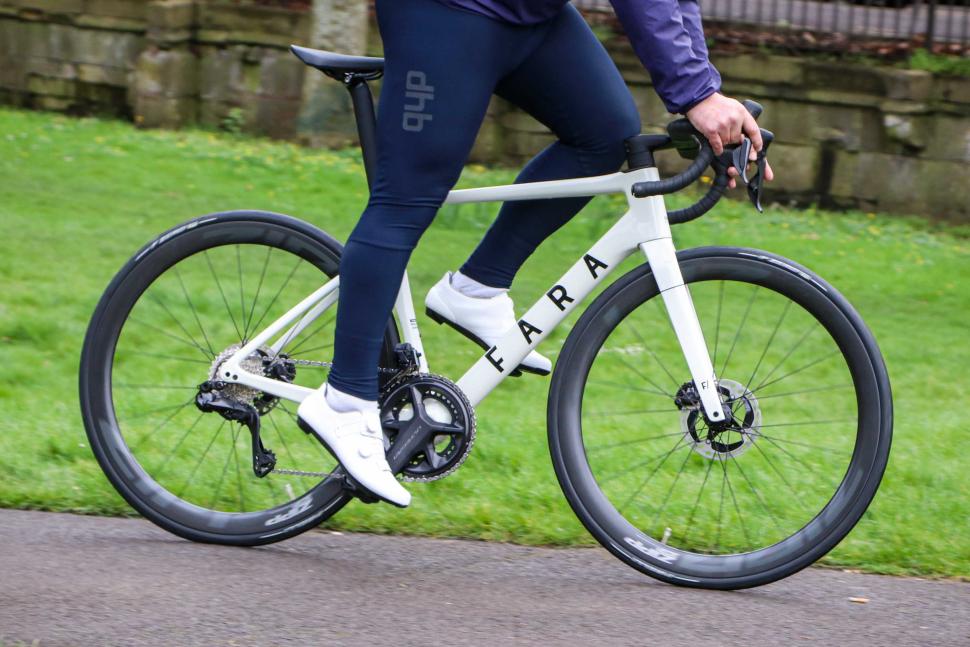 2024 Fara F Road - riding 1.jpg
2024 Fara F Road - riding 1.jpg£5,873.00
VERDICT:
Quick, nimble, fun, an impressive ride quality and excellent comfort – and I think it looks stunning
Plush ride quality
Good tyre clearance
Racy without feeling twitchy
Reversible seatpost
Hookless rims restrict you to tubeless tyres
Weight:
7,650g
Contact:
At road.cc every product is thoroughly tested for as long as it takes to get a proper insight into how well it works. Our reviewers are experienced cyclists that we trust to be objective. While we strive to ensure that opinions expressed are backed up by facts, reviews are by their nature an informed opinion, not a definitive verdict. We don't intentionally try to break anything (except locks) but we do try to look for weak points in any design. The overall score is not just an average of the other scores: it reflects both a product's function and value – with value determined by how a product compares with items of similar spec, quality, and price.
What the road.cc scores meanGood scores are more common than bad, because fortunately good products are more common than bad.
- Exceptional
- Excellent
- Very Good
- Good
- Quite good
- Average
- Not so good
- Poor
- Bad
- Appalling
The Fara F/Road is described as 'performance to go the distance', which it achieves by being stiff yet comfortable – all while being accompanied by an aero boost. I think it's a stunning-looking bike too, thanks to a range of paint colours and a fully integrated, clean cable- and hose-free design. Throw in a top-notch groupset, high-quality wheels and a well-chosen cockpit, and I think Norway's Fara has delivered a very good all-round road bike.
> Buy now: Fara F/Road for £5,873 from Fara
Ride
I reviewed the Fara F/AR about 18 months ago, which is basically this bike's slightly wilder cousin – and I was massively impressed with the quality of ride that it offered. And this is something that obviously runs in the family, as Fara's F/Road is exactly the same.
While different materials tend to have quite specific attributes when it comes to how they perform, there are also subtle little differences in frames constructed from the same material. Carbon fibre can come across quite harsh – or even a bit soulless – depending on how the material is laid up, or the grade of carbon fibre used.
Fara has certainly managed to avoid this, as its F/Road feels plush. It has a lovely ride quality that avoids any high-frequency vibration – and it has character too. The frame and fork offer you a huge amount of feedback and I found it great fun to ride. And what more do you want from a bike?
With the tyres pumped up firmly it still feels fantastic, and even a hundred-miler isn't going to leave you feeling battered.
Though don't think for a second that Fara has achieved this ride quality by dialling down on its stiffness. Thanks to the large bottom bracket area and the oversized tubing this is a very tight bike, responding well to hard efforts whether you're in or out of the saddle.
At 7.6kg it feels light too, and when you pair that with the sub-metre-long wheelbase it also feels very nimble and flickable.
This makes it a lot of fun on descents and around bends. The geometry is reasonably aggressive and handling on the fun side of fast, though you don't need to be a pro to exploit the speed on offer.
Fara doesn't make any wind tunnel aero claims about the bike, but it's clear for all to see that its F/Road follows an aero theme. It feels quick in real-world riding conditions, and when you add everything together this makes the Fara a proper all-rounder.
If you want something quick that doesn't compromise on ride quality and comfort, then the F/Road covers all of those bases.
Frame & Fork
Fara describes the F/Road as a bike that breaks the barriers between climbing and aero bikes, by using aero-optimised truncated airfoil tube shapes to boost efficiency, while still keeping the weight low.
It may not be the lightest on the market, but a claimed sub-900g frame weight for a full-carbon fibre frame is still impressive, especially when you consider its focus on larger, heavier aero tube shapes.
It's a very clean-looking machine too, with no external seatclamp and integrated and fully internal cable/hose routing. Fara has created a frame that caters for both mechanical and electronic groupsets, which is a bit of a bonus these days, when a lot of high-end frames are electronic only.
You get a choice of six colour option, all of which I think are tasteful and eye-catching. My personal favourite is the Morell Red with red logos, though as with the Fjord Green this will cost you an extra £89, which to be franks is a tiny fraction of the overall price.
In fact, I think the aesthetics work well. The tube shapes are chunky, but they flow nicely, transitioning smoothly from one tube to another. The subtle curve at the top of the seatstays add a little elegance, while the cutout for the rear wheel conforms to the arc of the tyres – a detail not achieved by all bike brands.
When it comes to tyres, the F/Road will accept rubber up to 32mm wide, which is roomy enough for most situations. This means you're not just limited to smooth tarmac, which is probably just as well considering the state of our roads these days, and you can ride the Fara down country lanes without wincing at every bump, pothole or cracked surface you encounter.
Fara has specced a T47 bottom bracket, which is a standard that is definitely gaining in popularity among today's bike designers. In a nutshell, T47 has the dimensions of a press-fit design, with a larger bottom bracket shell diameter and width – but it also has the benefit of using threaded bearing cups that don't rely on such tight mating tolerances between the frame and the bearing cups to avoid water/dust ingress and any creaking.
The benefit of the larger shell is that the tubes that meet the bottom bracket area can be wider, which increases stiffness and boosts power transfer. This is all achieved without affecting the Q factor – the distance between the crank arms – when using outboard bearings.
Other neat touches include the reversible seatpost design, which allows you to spin the seatpost around to give you either a 25mm or 0mm offset. This is handy if you want to use the F/Road for a time trial or triathlon, where a seating position that's more forward works well with tri-bars.
The F/Road is available in five sizes, which Fara says cover riders from 160cm (5ft 3in) to 2m (just under 6ft 7in), a range that should cover most of us.
Our medium/54cm test model has a 547mm top tube and a stack and reach of 545mm and 386mm respectively.
The 144mm tall head tube has a 73° angle that's matched by the seat angle. Both of these angles change in respect to the frame size, as does the fork offset, which keeps the ride quality and handling the same while avoiding toe-clip overlap, regardless of the size of the frame.
On our frame Fara has also managed to keep the wheelbase just under a meter in length, which I find is a sweet spot for keeping a road bike feeling nimble and flickable – and the F/Road is both of these things.
Finishing Kit
Fara offers a range of pre-built bikes for instant dispatch based on the most popular groupsets and kit available, or you can use Fara's simple bike builder to spec your own bike from the ground up.
Our bike comes with Shimano's Ultegra 12-speed Di2 groupset that you can have with a 50/36T chainset and an 11-30T cassette, or a 50/34T paired with an 11-34T cassette if you want 1:1 ratio gearing for a bit more help in the hills.
It's a brilliant groupset by any standard, as our review shows.
Ultegra is now only available as an electronic Di2 option and is now 12-speed, like its top-tier Dura-Ace sibling. It delivers super-smooth shifting while still offering you good feedback through the lever, which lets you feel that the gear change is taking place.
The ergonomics of the lever and hoods are very comfortable, and the battery range is impressive.
I also love Ultegra's braking performance of. It's really powerful without being grabby, and the modulation is excellent regardless of the weather conditions. Fara specs 160mm rotors front and rear, so there is more than enough stopping power on offer.
The Zipp 303s wheels weigh around 1,550g per pair, feature a 45mm-deep carbon fibre rims and are great all-rounders. The rims are deep enough to offer an aerodynamic advantage when working with the frame and fork, and light enough not to hold you back to any noticeable degree when you hit the climbs.
My only real criticism is that their hookless design means you can only run them with tubeless tyres, which isn't something I usually bother with on my road bikes. You can still run them tubes, though these will need to be paired with tubeless tyres that work with those rims, and these are generally more expensive than their clincher counterparts. It's not a game-changer, but it is something to be aware of.
Thankfully, the Pirelli P-Zero tyres are some of the best tubeless race tyres out there, at least in my opinion. They are grippy, fast rolling and impressively durable for such a performance-orientated tyre.
As with the full-carbon reversible seatpost, the integrated handlebar/stem is also from Fara.
The downside to an integrated setup is a lack of adjustability, but with 16 bar width and stem options available, getting your position dialled in shouldn't be a problem.
I like this model. The wide aero top section is comfortable to rest your hands on, a comfort further boosted by the plush bar tape, and the drops are reasonably shallow, which allows pretty much any rider to use them. It's a firm and stiff setup, so there's no sign of flex when you're pulling hard on them for sprinting or climbing.
Fara gives you a choice of two Fizik saddles, of which we have the Vento Argo R1.
It's a short saddle design that I enjoyed using, thanks to the firm padding and curved shape.
Pricing & Competition
As mentioned above, you can go down the pre-specced route or create your own in the bike builder. Our build is one of the standard ones and comes in at £5,873. The least expensive option is based around a SRAM Rival AXS groupset, Fulcrum Racing 4 DB wheelset, 3T alloy bar/stem combo and a Fizik Tempo Argo saddle. That will set you back £4,538.
Fara offers four groupsets in total, and if you took the same build as ours but changed groupset you'd be looking at £5,517 for Rival AXS, £5,784 for SRAM Force AXS and £8,454 for Dura-Ace.
If you upgrade the wheels from Zipp's 303s to 404 Firecrests you're looking at an extra £712, while the two top-end paint jobs add another £89.
The F/Road reminds me of the Orro Gold STC in the way it rides, especially the high-quality smoothness to it. The only real difference between the two is that the Orro's taller head tube nudges it into the endurance category. With an Ultegra Di2 Tailormade build it costs £4,899, specced with carbon Vision SC40 wheels and the same company's Vision alloy stem/carbon handlebar.
A similar spec Fara costs £5,517 with Fulcrum wheels and 3T finishing kit.
The Scultura is Merida's 'aeroish' lightweight road bike. The Scultura 9000, which is specced with an Ultegra Di2 groupset, deep-section Reynolds wheels and an integrated cockpit, costs £5,950.
The Tarmac SL8 Pro comes with an Ultegra Di2 groupset, Roval Rapide wheels and a carbon handlebar – but it will cost you a cool £8,000. Weight-wise, Specialized claims it's lighter than the Fara, but only by a few hundred grams. The SL8 also focuses on aerodynamics and low weight, and though I haven't personally ridden it, I rated the SL7 very highly.
For more options check out our best road bikes buyer's guide for bikes from £300 to £12,000.
Conclusion
At the forefront of everything I like about the F/Road is the ride quality. For such a stiff, race- orientated bike the Fara exudes comfort and a complete lack of harshness. It's definitely quick too, and that comfort allows you to exploit that speed over a longer distance than some race bikes.
Verdict
Quick, nimble, fun, an impressive ride quality and excellent comfort – and I think it looks stunning
road.cc test report
Make and model: Fara F/Road
Size tested: 54
About the bike
List the components used to build up the bike.
Groupset: Ultegra R8170 Di2 12 speed
Wheelset: Zipp 303s
Tyres: Pirelli P-Zero
Cockpit: Fara Integrated carbon handlebar/stem
Seatpost: Fara carbon - reversible
Saddle: Fizik Vento Argo R1
Tell us what the bike is for and who it's aimed at. What do the manufacturers say about it? How does that compare to your own feelings about the bike?
Fara says: "We designed the F/Road for real cyclists. It is responsive and fast without sacrificing weight in the name of aerodynamics, a race bike that can battle it out with the fastest in its class without being too harsh or forcing you into an uncomfortable riding position. Following our Scandinavian design traditions, it is also a practical bike, easy to work on and easy to live with. We think we got the mix just right."
I think Fara is correct in saying that the F/Road is a balance of speed, weight and comfort.
Where does this model sit in the range? Tell us briefly about the cheaper options and the more expensive options
The F/Road range is based around one frameset specced with different component builds. I've mentioned a full listing in the review section.
Frame and fork
Overall rating for frame and fork
9/10
Tell us about the build quality and finish of the frame and fork?
A clean finish that is stunning both on the inside and outside of the frame.
Tell us about the materials used in the frame and fork?
The frame and fork use Toray carbon fibre, though Fara doesn't specify exactly what grade of carbon it uses.
Tell us about the geometry of the frame and fork?
The geometry is race orientated with relatively steep angles and a low front end when compared to an endurance bike.
How was the bike in terms of height and reach? How did it compare to other bikes of the same stated size?
The height and reach figures are fairly typical for a bike of this type and size.
Riding the bike
Was the bike comfortable to ride? Tell us how you felt about the ride quality.
Very comfortable. The frameset has a great ride quality, plus you have the option of running tyres up to 32mm.
Did the bike feel stiff in the right places? Did any part of the bike feel too stiff or too flexible?
Stiffness is impressive – thanks to the oversized tubing and the T47 bottom bracket shell.
How did the bike transfer power? Did it feel efficient?
At 7.6kg the F/Road feels light enough to be efficient, and the aero tubing and deep section wheels add to that feeling of efficiency.
Was there any toe-clip overlap with the front wheel? If so was it a problem?
No
How would you describe the steering? Was it lively neutral or unresponsive? Responsive
Tell us some more about the handling. How did the bike feel overall? Did it do particular things well or badly?
The handling is quick and thanks to loads of feedback you can really push the Fara into the bends and know exactly what the tyres are up to, which gives you a lot of confidence.
Which components had the most effect (good or bad) on the bike's comfort? would you recommend any changes?
I liked the shape of the Fizik saddle, plus the handlebar tape feels plush and shock absorbing.
Which components had the most effect (good or bad) on the bike's stiffness? would you recommend any changes?
The Zipp wheels are stiff enough for hard efforts, as is the integrated handlebar/stem.
Which components had the most effect (good or bad) on the bike's efficiency? would you recommend any changes?
Pirelli's P-Zero tyres are grippy and fast rolling, which helps from an efficiency point of view.
Rate the bike for efficiency of power transfer:
9/10
Rate the bike for acceleration:
8/10
Rate the bike for sprinting:
8/10
Rate the bike for high speed stability:
9/10
Rate the bike for cruising speed stability:
9/10
Rate the bike for low speed stability:
8/10
Rate the bike for flat cornering:
9/10
Rate the bike for cornering on descents:
9/10
Rate the bike for climbing:
8/10
The drivetrain
Rate the drivetrain for performance:
9/10
Rate the drivetrain for durability:
8/10
Rate the drivetrain for weight:
8/10
Tell us some more about the drivetrain. Anything you particularly did or didn't like? Any components which didn't work well together?
Ultegra Di2 offers most of Dura-Ace's performance but at a lower price point, with a little extra weight the only down side.
Wheels and tyres
Rate the wheels for performance:
8/10
Rate the wheels for durability:
8/10
Rate the wheels for weight:
8/10
Rate the wheels for comfort:
7/10
Tell us some more about the wheels.Did they work well in the conditions you encountered? Would you change the wheels? If so what for?
The wheels are a decent weight considering their deep-section rims, and they're stiff enough for your hard out-of-saddle efforts. However, their hookless rims are limited to tubeless-ready tyres.
Rate the tyres for performance:
9/10
Rate the tyres for durability:
8/10
Rate the tyres for weight:
8/10
Rate the tyres for comfort:
8/10
Tell us some more about the tyres. Did they work well in the conditions you encountered? Would you change the tyres? If so what for?
They're fast rolling and grippy, which means they're great tyres for exploiting the perofrmance of the Fara's frameset.
Controls
Rate the controls for performance:
8/10
Rate the controls for durability:
8/10
Rate the controls for weight:
8/10
Rate the controls for comfort:
8/10
Tell us some more about the controls. Any particularly good or bad components? How would the controls work for larger or smaller riders?
A good selection of kit throughout. The drops are easily accessible and the saddle is very comfortable.
Your summary
Did you enjoy riding the bike? Yes
Would you consider buying the bike? Yes
Would you recommend the bike to a friend? Yes
How does the price compare to that of similar bikes in the market, including ones recently tested on road.cc?
It's pretty well priced against much of the competition, as is shown in the main review.
Rate the bike overall for performance:
9/10
Rate the bike overall for value:
5/10
Use this box to explain your overall score
A high-quality ride and a performance to match. It's a very complete bike, and well priced against the competition too.
About the tester
Age: 44
I usually ride: This month's test bike My best bike is: B'Twin Ultra CF draped in the latest bling test components
I've been riding for: Over 20 years I ride: Every day I would class myself as: Expert
I regularly do the following types of riding: time trialling, commuting, club rides, sportives, fixed/singlespeed,
Since writing his first bike review for road.cc back in early 2009 senior product reviewer Stu has tested more than a thousand pieces of kit, and hundreds of bikes.
With an HND in mechanical engineering and previous roles as a CNC programmer/machinist, draughtsman and development engineer (working in new product design) Stu understands what it takes to bring a product to market. A mix of that knowledge combined with his love of road and gravel cycling puts him in the ideal position to put the latest kit through its paces.
He first made the switch to road cycling in 1999, primarily for fitness, but it didn’t take long for his competitive side to take over which led to around ten years as a time triallist and some pretty decent results. These days though riding is more about escapism, keeping the weight off and just enjoying the fact that he gets to ride the latest technology as part of his day job.
Latest Comments
- Jbnuts 23 min 40 sec ago
I did similar. I found a Mapei-finished C59 disc frameset online and proceeded to build what I hoped would be a fantastic Colnago. It turned out...
- stonojnr 3 hours 50 min ago
exactly, thats my issue, how does knowing the speed, then change the perspective of a close pass ?...
- Dnnnnnn 4 hours 24 min ago
On the subject of value, it's also worth mentioning the discount available through Cycling UK and British Cycling? I also spotted 10% off at...
- NPlus1Bikelights 4 hours 47 min ago
We've saved them multiple times with Kick Starters. Shame. Edit: tense.
- NPlus1Bikelights 4 hours 50 min ago
Or the congregation reads the news and does not like all the stories about ignored abuse by senior members of the church.
- NPlus1Bikelights 4 hours 52 min ago
Kask remains sexier. And their prices, whilst high, are not as over the top as these.
- rookybiker 5 hours 14 min ago
> Are the ASO, basically saying it didn't happen The authority is the UCI. ASO was only the race organiser.
- brooksby 6 hours 26 min ago
I have a Grand Prix appointment next week anyway, so I may decide to discuss this with them instead of what I'd booked it for...
- David9694 6 hours 28 min ago
Come with me to Brockenhurst, New Forest. It has a train station and a bike shop and in the summer season the area attracts visitors, many of whom...
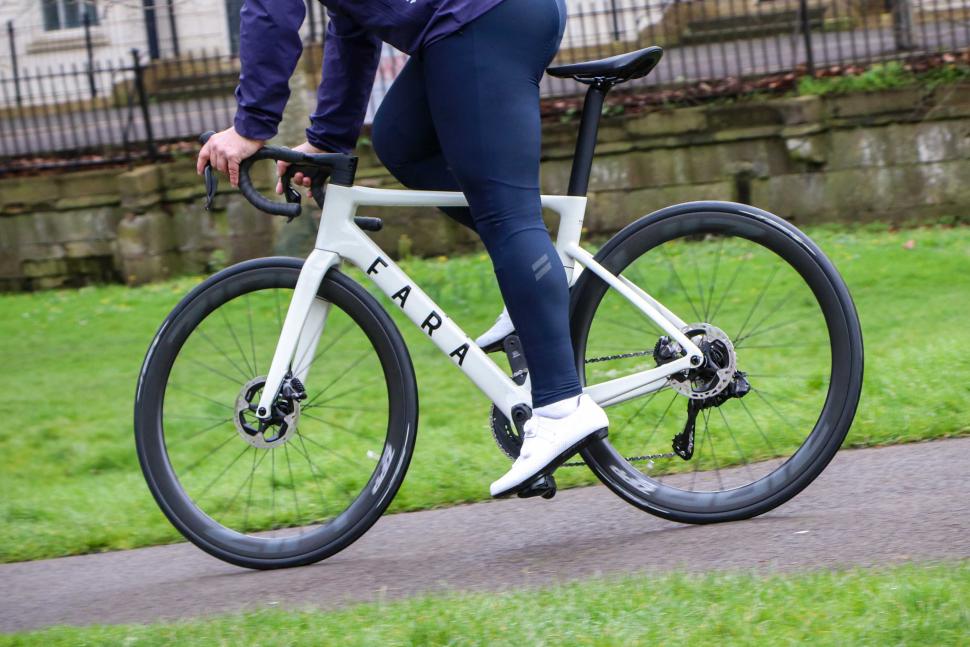









































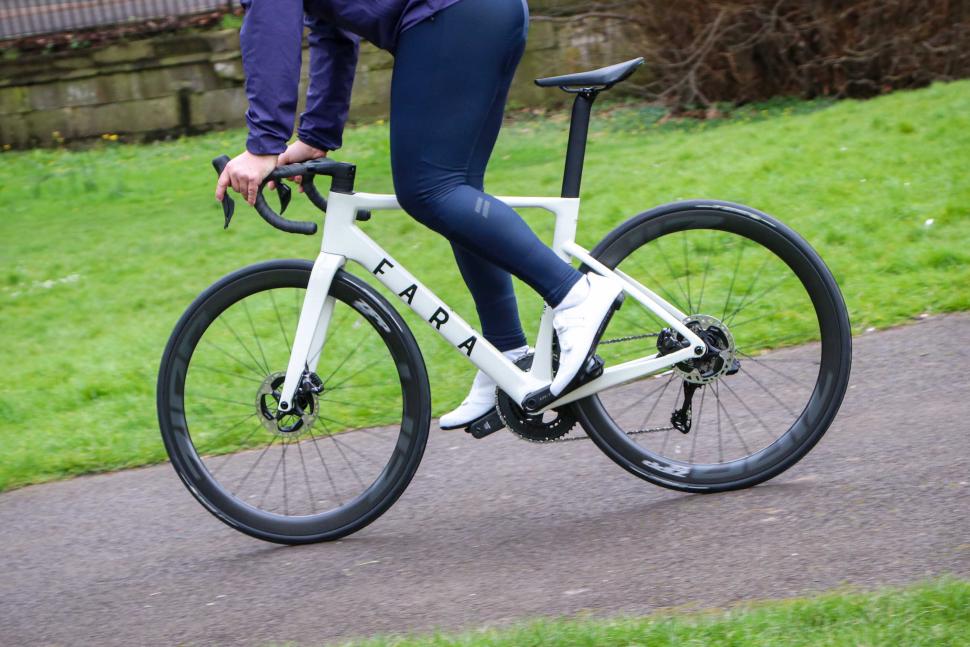
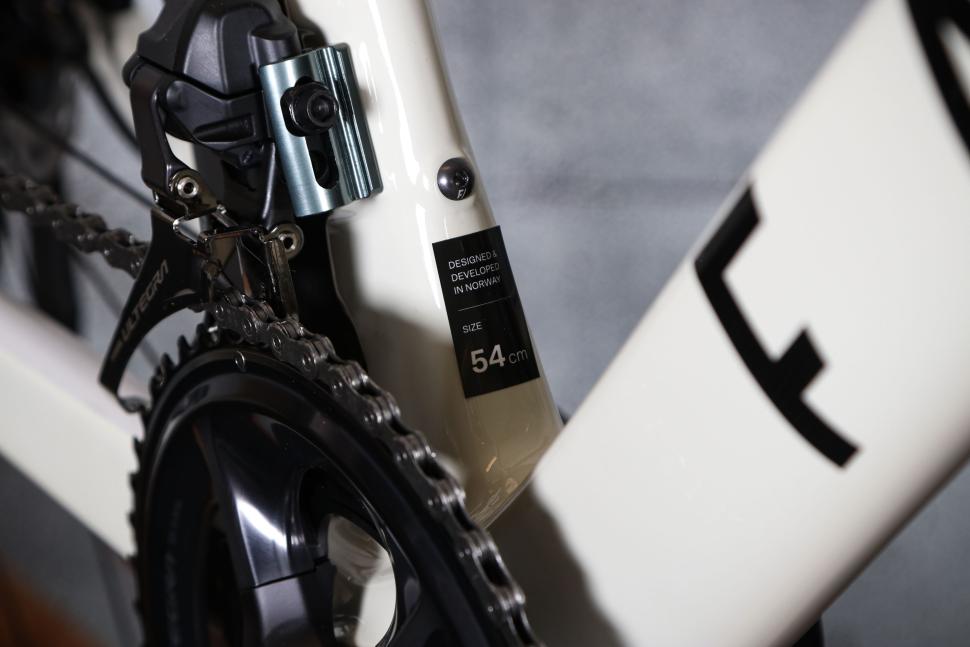

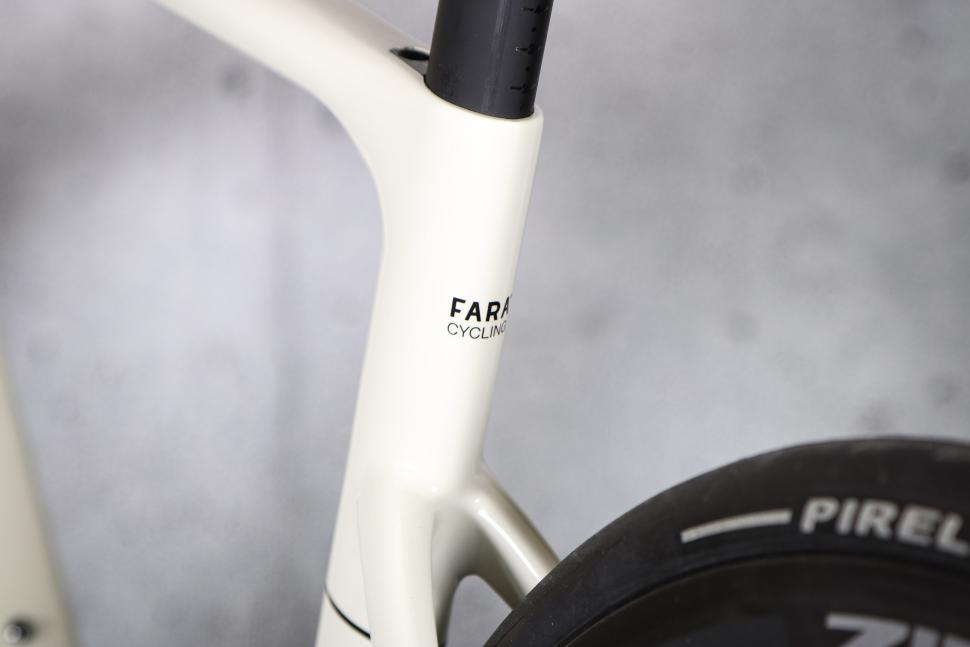

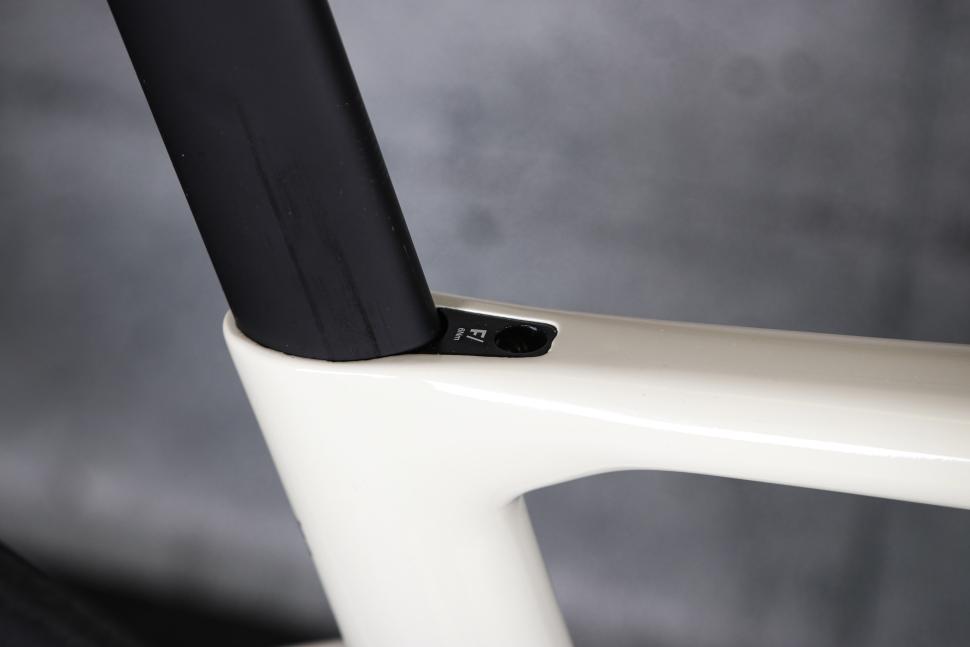
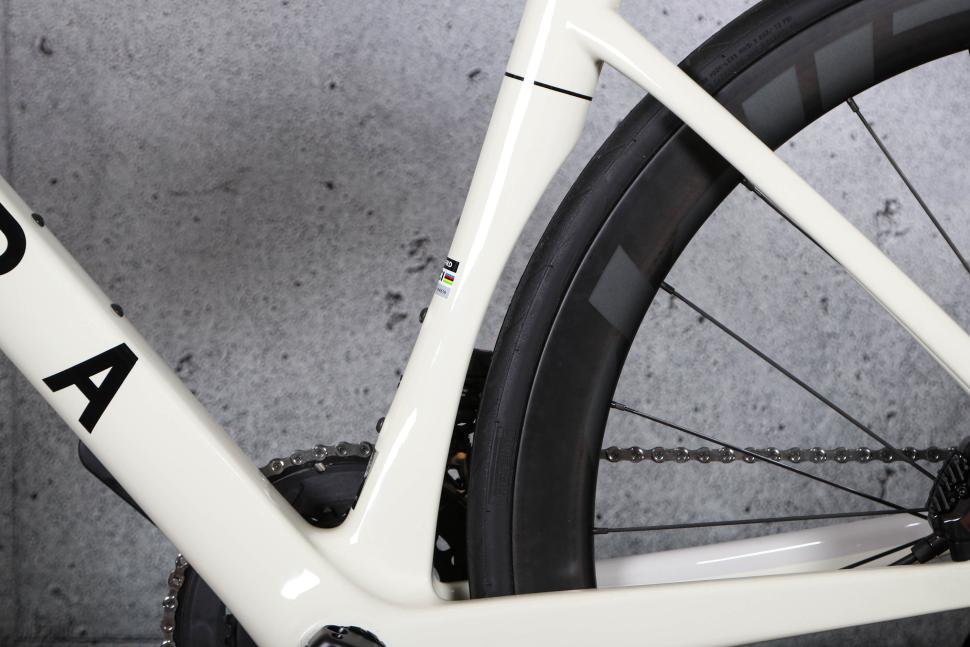
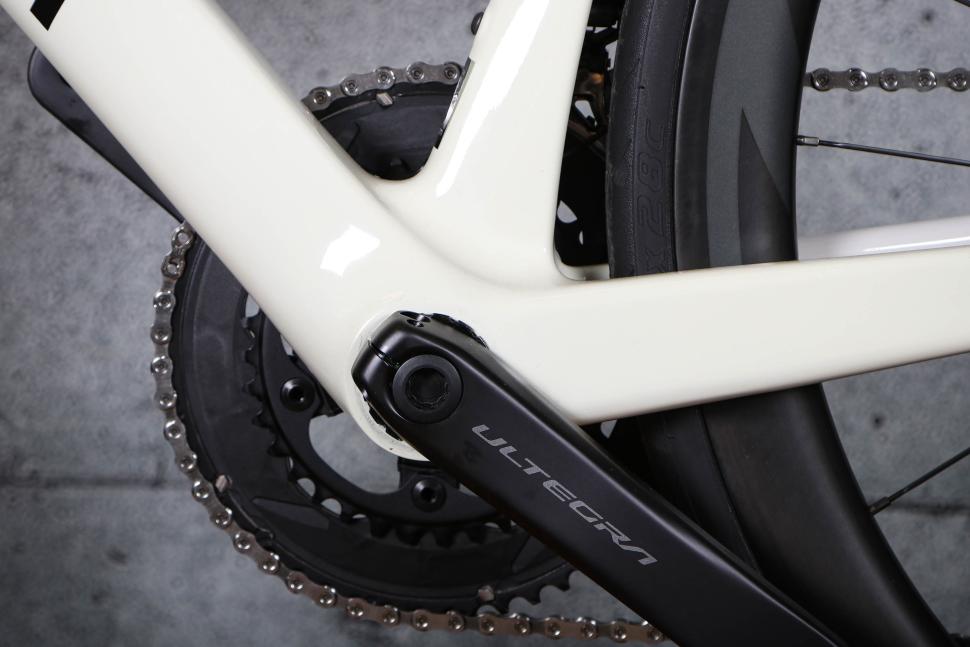
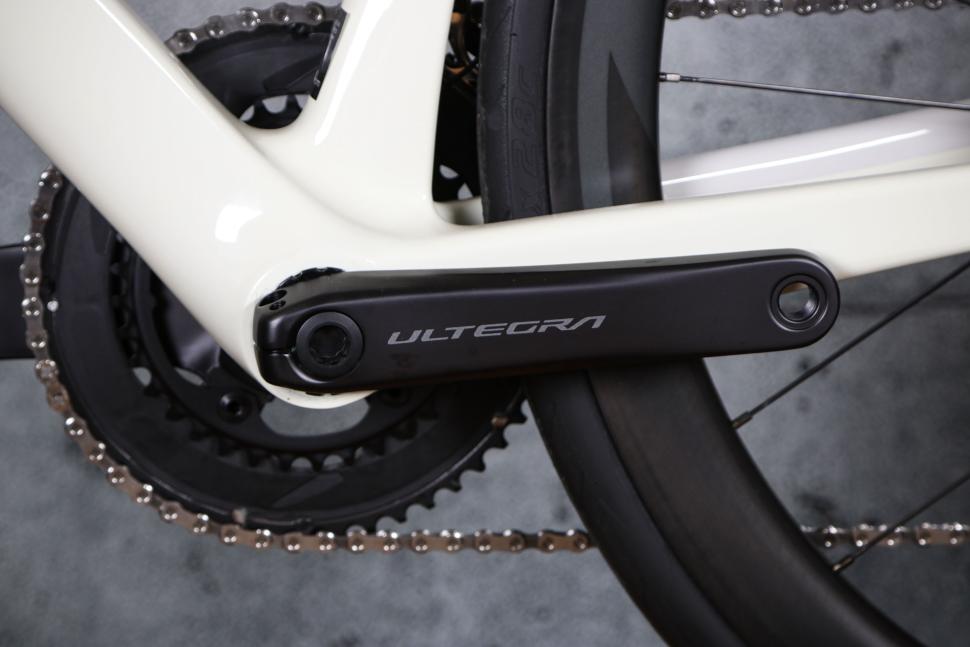
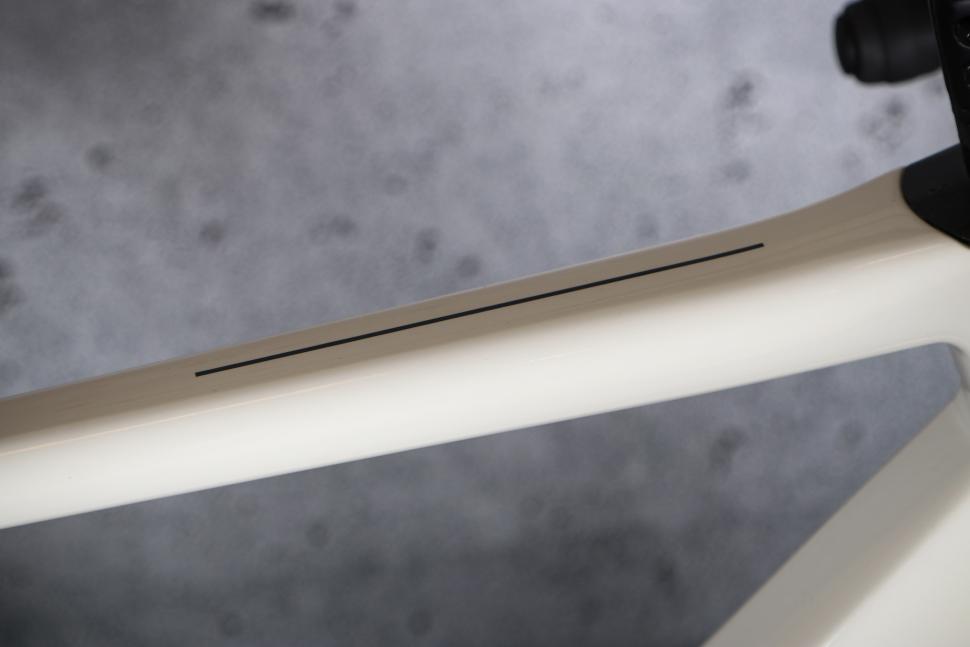
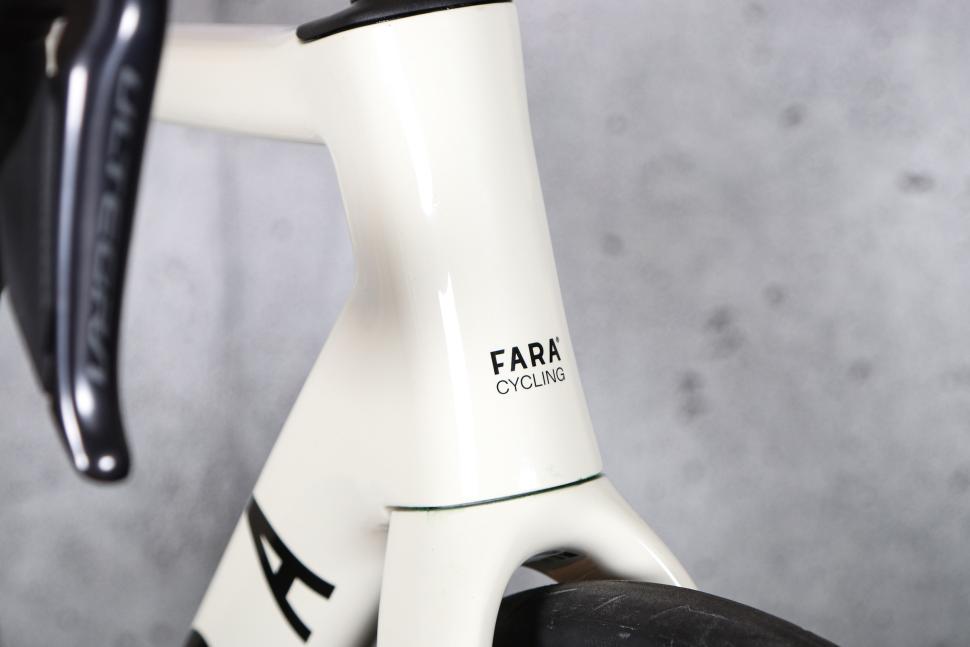
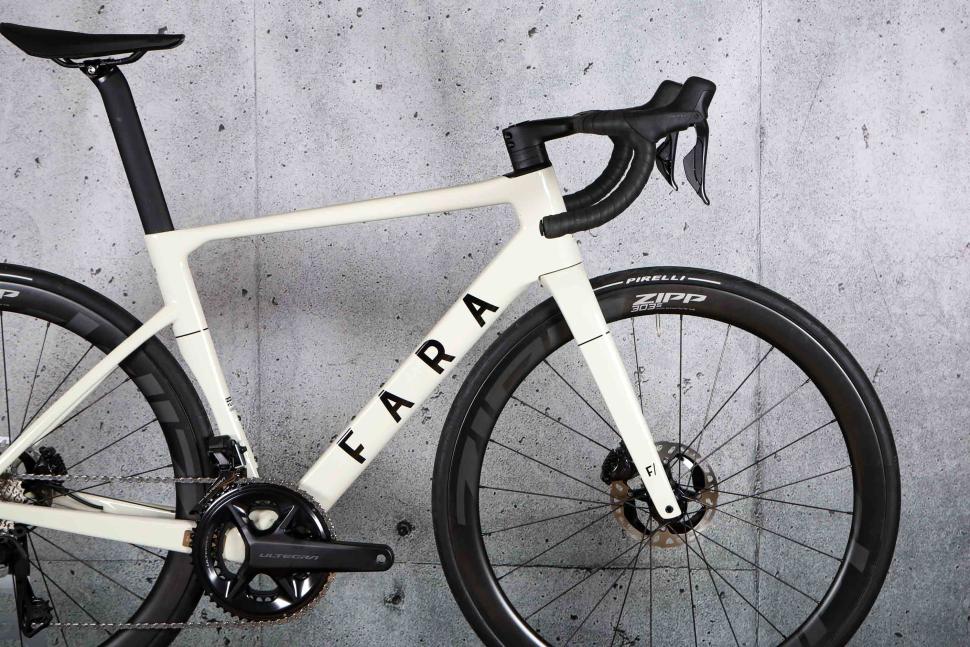
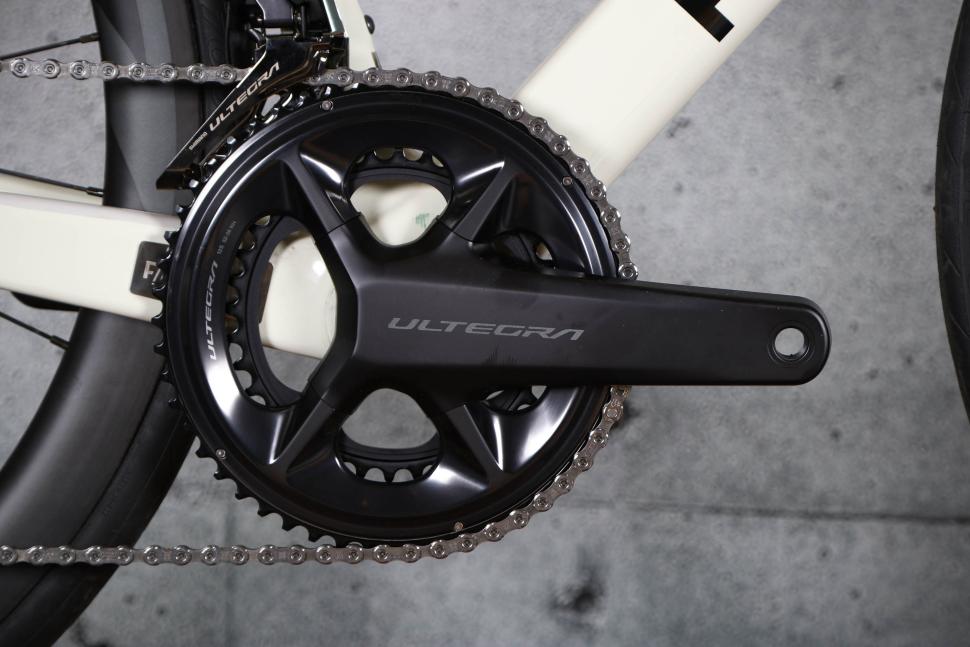

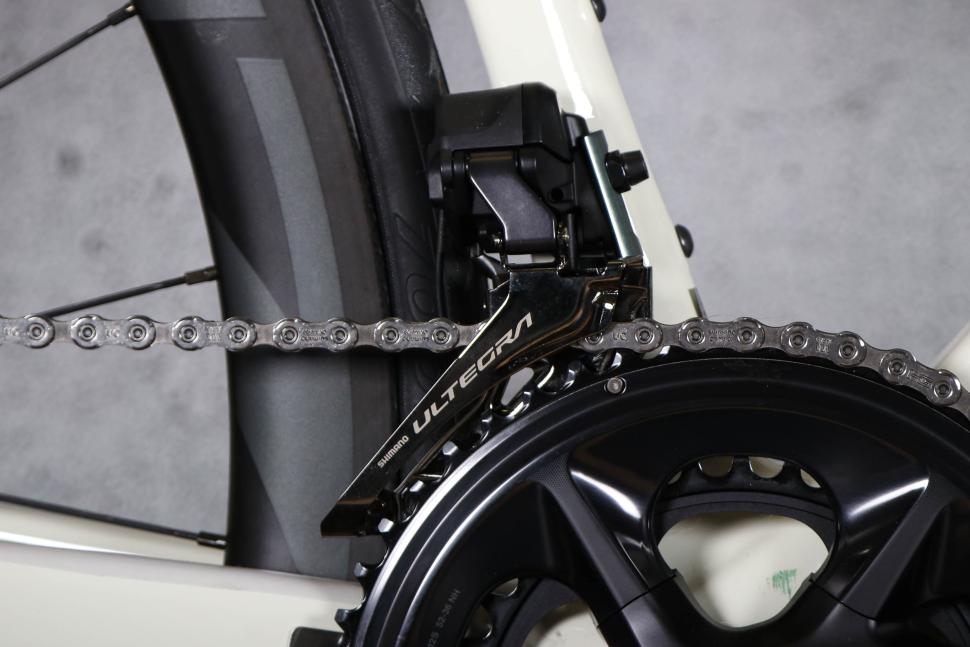
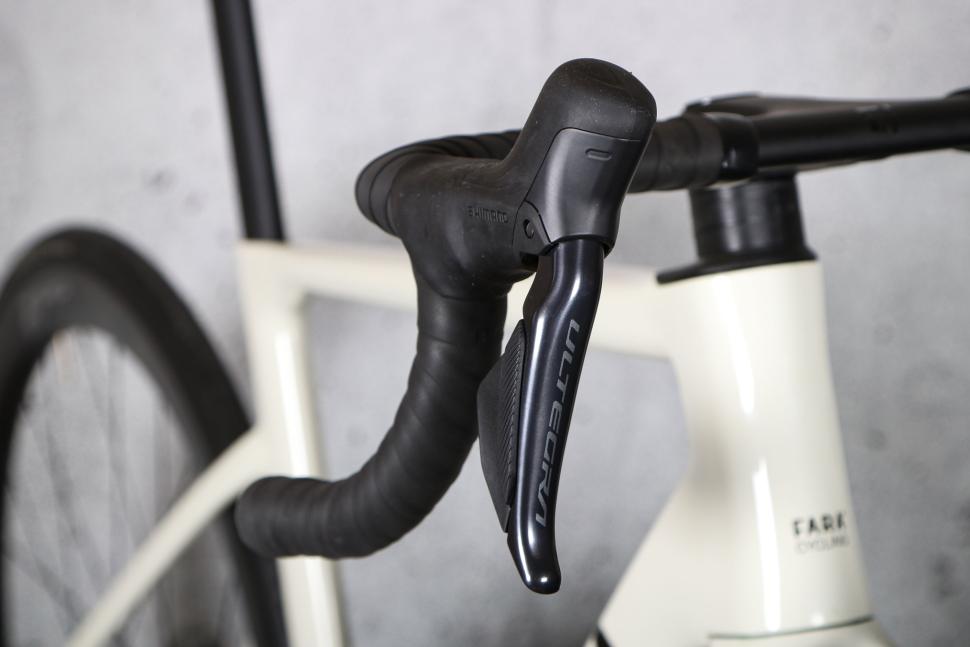
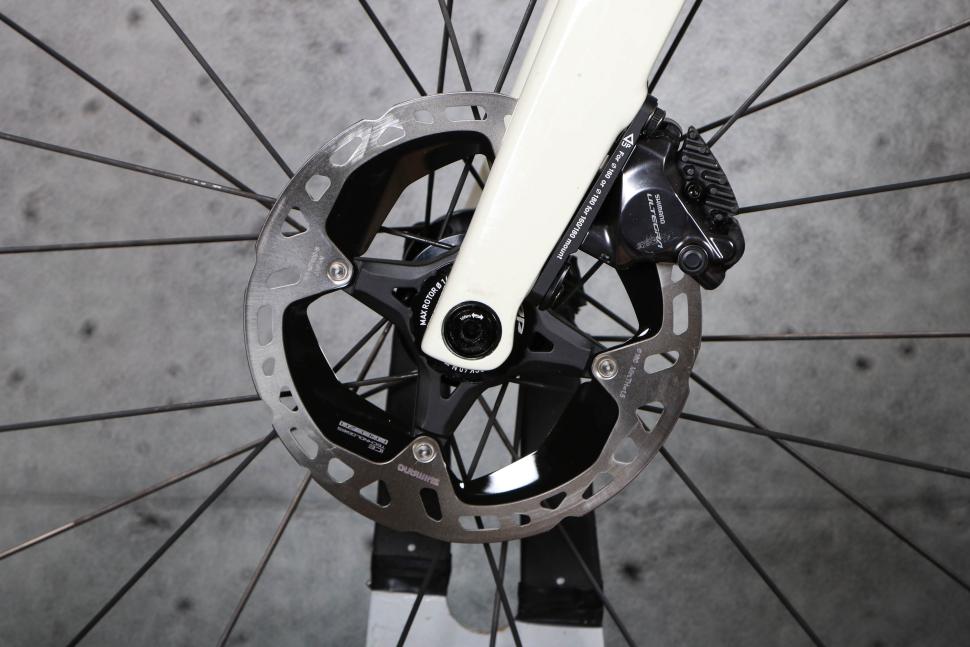
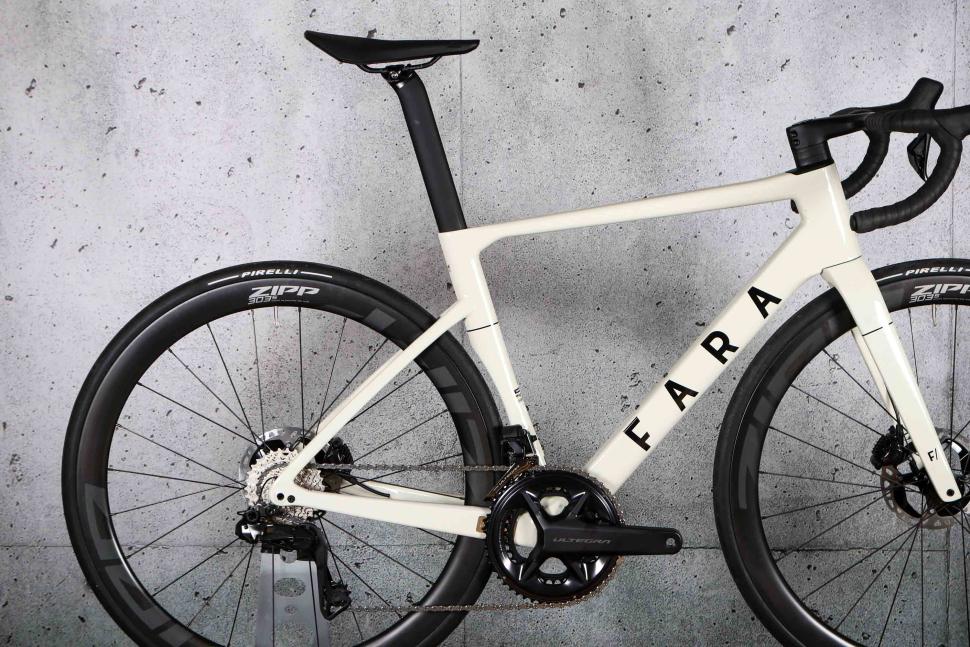
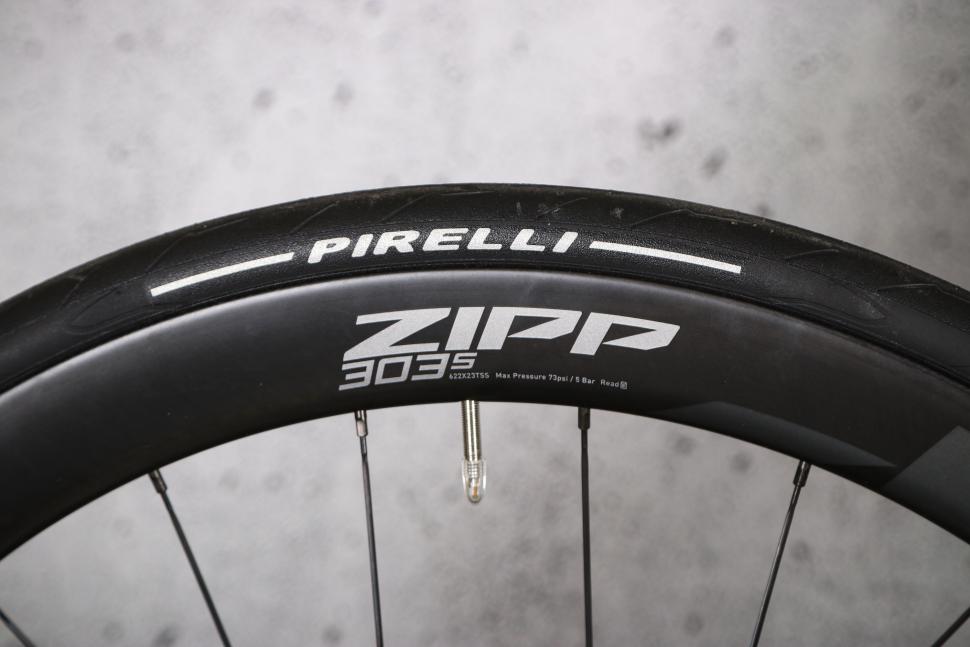
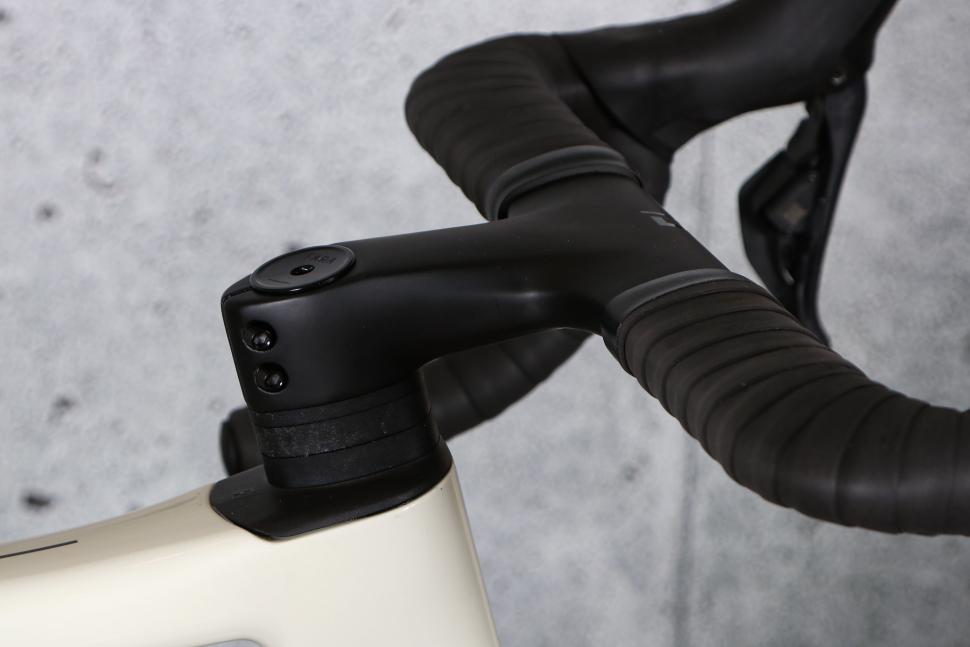
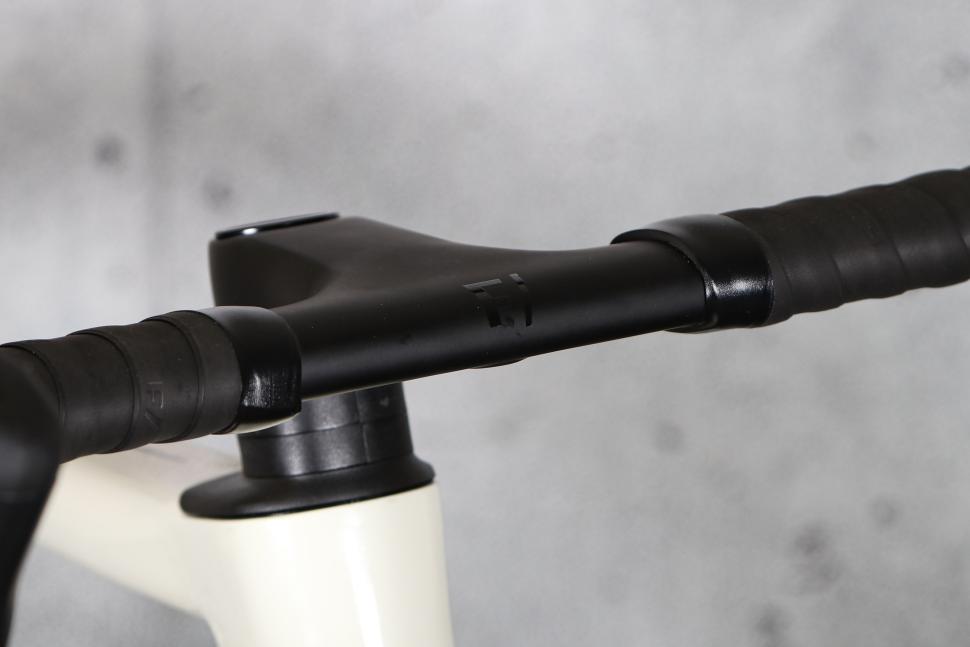

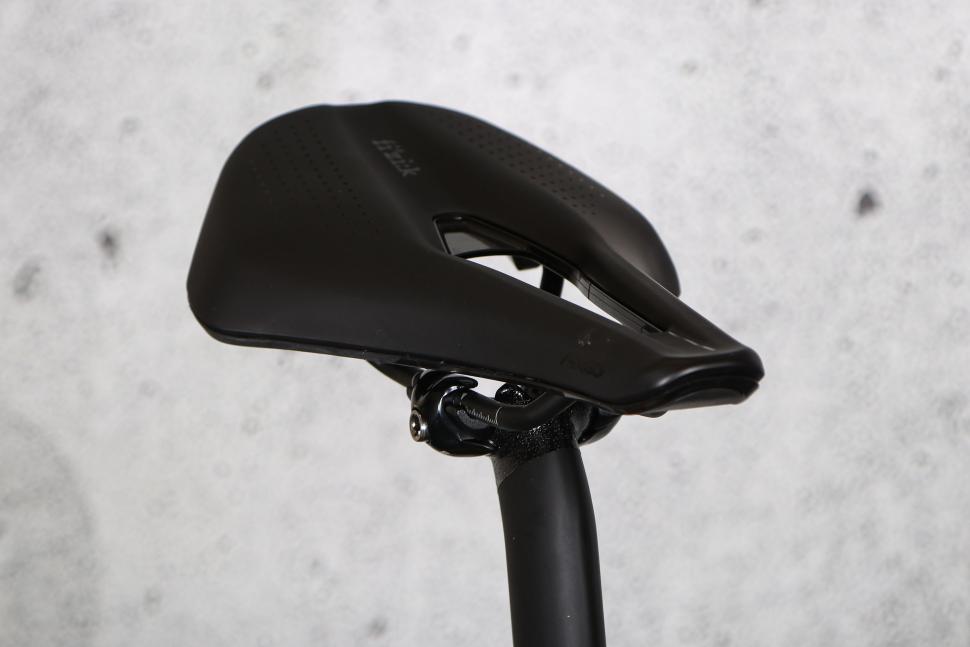
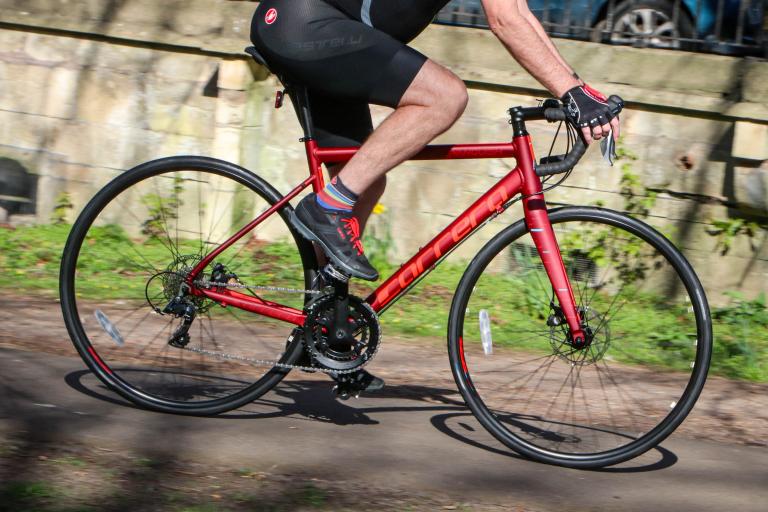
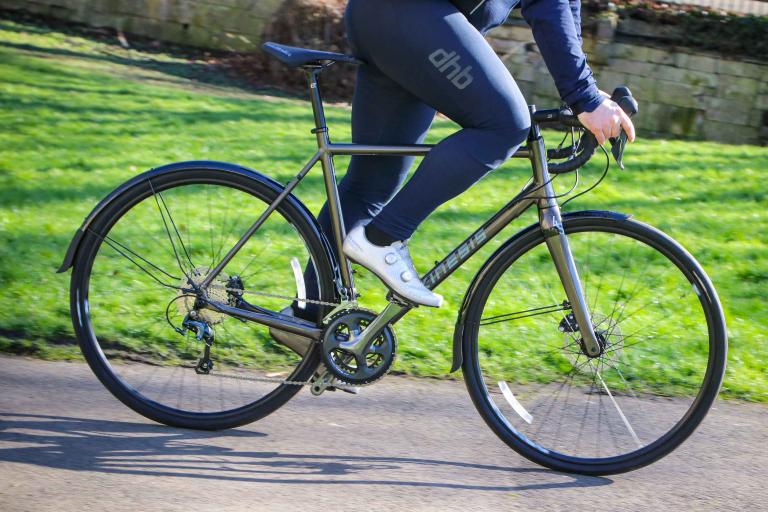
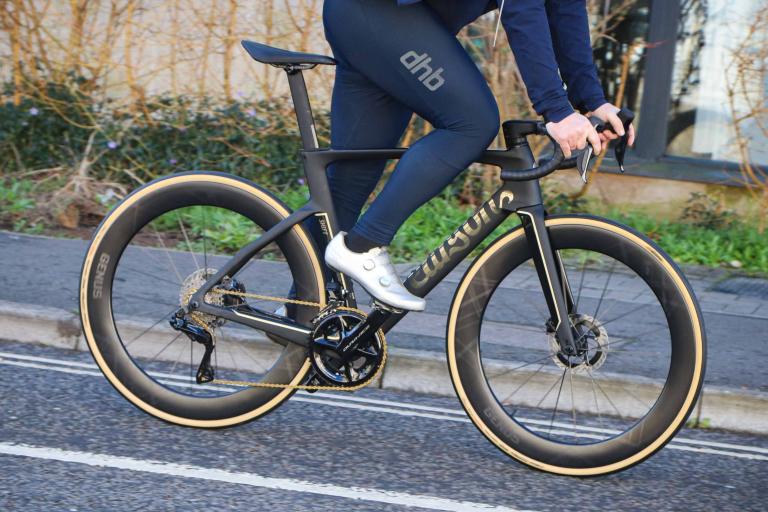
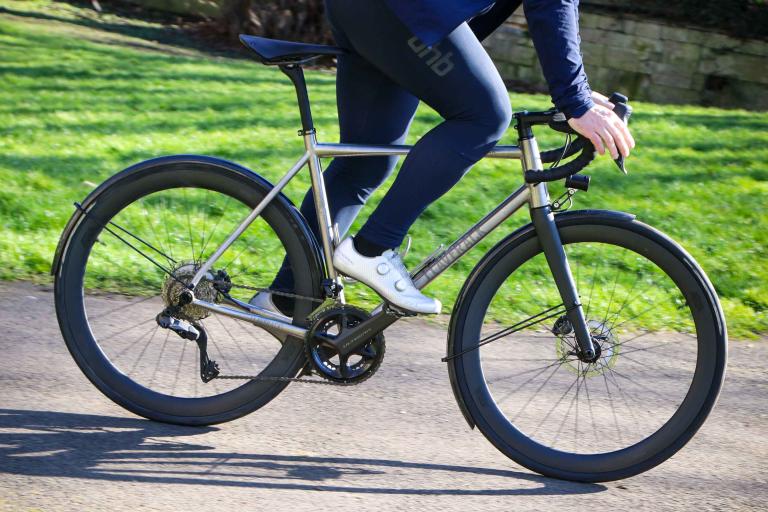
Add new comment
25 comments
I've been a bike-junkie for years now, but even I'm getting fatigued by reading reviews of supposed high end bikes with high end prices, that are built around generic carbon frames from a Chinese factory that probably cost about $200 per unit. If this bike was £3500 I'd think maybe in today's market that might be acceptable (although still at the high end). Doing the maths, the components probably equate to 'maybe', being generous, half the price of this bike? With taxes, transport and build costs and a 20% markup £3500 - £3750 seems reasonable? These are my thoughts, but accept I could be missing a wider point. Keen to hear what others think.
All prices approximate but:
Ultegra Di2 groupset: £1300
Zipp 303s wheels: £600
Pirelli P-zero tyres: £100
Fizik Vento Argo R1 saddle: £190
Frame: Hard to say but $200 per unit is a severe underestimate, nothing to show that this is a generic CF frame and the company claim it is its own custom design, which means setup costs of at least $50,000. £500 at the cheapest I'd guess.
Say another £400 for peripherals, transport and assembly?
So that's £3100, take off 20% VAT from the £5800 rrp (£1160) and customs duty of 14% (£812) and you're left with about £700 profit, not outrageous on a £5800 item expecially if it's split between manufacturer and retailer.
Your suggested price of £3500 would leave £2200 after VAT and import duty were paid, less than even your estimate of what the bike cost to make.
They get their frames from Workswell I believe, looks like a tweaked WCB-R-306. There's no way they'd be paying the same £1300 for Di2 that we would as consumers - take the VAT off for a start, then see what the wholesale price is from the distributor. Probably under £500 for the groupset depending on how many units you're buying, now apply the same logic to the rest of the components
There's no way it's going to be nearer £500, the places selling that groupset for £1300 (for example Merlin) are already buying non-retail unpackaged items via the OEM channels. So remove VAT and a very small margin, I suspect the price is nearer £900-1000. And then the bike manufacturer is going to have to charge VAT on the complete bike, so that will find its way back into the cost breakdown of the groupset as a proportion.
So Merlin are buying it for 1000 then selling it for £1080 plus tax and free shipping? And the OEM they're buying from is selling to Merlin for no profit at all? is that what you think is happening?
Do you know what OEM channel means?
I know that Merlin buy their components from 3rd parties that aren't the local distributor, yes. They quite possibly get their parts from a bicycle manufacturer that has surplus stock, but you seem to think they'd be giving it to Merlin for cost?
Merlin are the manufacturer (OEM), they don't buy from an OEM. They qualify as they sell own-brand bikes. Hence why the likes of Madison aren't that happy about it. Merlin will be buying non-retail plain packaged compoents direct from Shimano or their agent at their OEM price as a manufacturer, adding a small margin, bundling into kits and box-shifting via their website. Theoretically OEM parts can only be fitted to a new bike and not sold as groupsets, but that seems to be ignored and the distributor (Madison this this case) don't like it.
It's very similar situation to that used in the software world before Microsoft started with the 365 monthly SaaS model. A retail boxed copy of MS Office would cost over £200, yet you could buy it bundled with a PC for £30. The Microsoft licence said it had to be sold with hardware, so box-shifters were flogging OEM MS Office licence keys for £45 with a free mouse and retailers with the boxed copies were left with them on the shelf.
Very interesting, didn't know about that - always wondered how they could sell so far below retail.
Calls out my estimated figures, but...
Uses retail pricing to justify costs.
Not wanting to make this Ad Hominem, but it would be a better debate, and I'm open to a debate, if you applied a like for like approach to costs.
The RRP of Ultegra Di2 8170 is £2,399. Yes it's available reduced, do you have any evidence that manufacturers get it for below my quoted price of £1300?
P.S. I haven't "called you out", I've politely differed in my opinion. Not the same thing.
I understand your logic, but Rendel Harris maths seems correct to me.
For me the real problem is that these essential no-name bicycles built around no-name components or even branded chinese groupsets that now have tons of reviews. I understand that in high end being unnecessary expensive may even be a key selling point, but in lower budgets it is meaningless not to have such bikes, built by specs, not brands.
Unfortunately it's not correct; removing 20% VAT from £5800 gives a net value of £4833.33 as the VAT value is £966.67 not £1160.
How could 20% (i.e. 1/5) of 5800 be less than 1000?
5800/1.2 = 4833.33 (20% VAT is added to 4833.33)
you don't apply the 20% to the VAT included price.
Ha ha. Good point.
VAT is not 20% of the gross value, it's 20% added to the net value.
Okay, so they make £900-odd profit not £700, I think the point still stands.
Absolutely, your overall point wasn't in dispute, the statement "maths seems correct to me" was.
The math seems correct regarding that yes it expensive but yes the parts are also expensive too. I am neither a saleman nor an accountant guys, but the parts mentioned are overpriced too.
I have absolutely no idea what you're trying to say.
£190 for a seat?
Well, I didn't say that. And nor did Cyclisto. But a quick search for something like a Fizik 3D printed saddle will make you think 190 quid is a bargain.
I have the Fizik Vento Argo R3 and it's a beauty for the butt on a +3 hour ride. YMMV.
Nothing would make me think 190 quid is a bargain. An SLR XP used to cost less than half of that, it weighed next to nothing, and you could ride all day on it, day after day, without giving it a thought. Maybe it depends on the person though.
Used to...a saddle from almost 20 years ago.